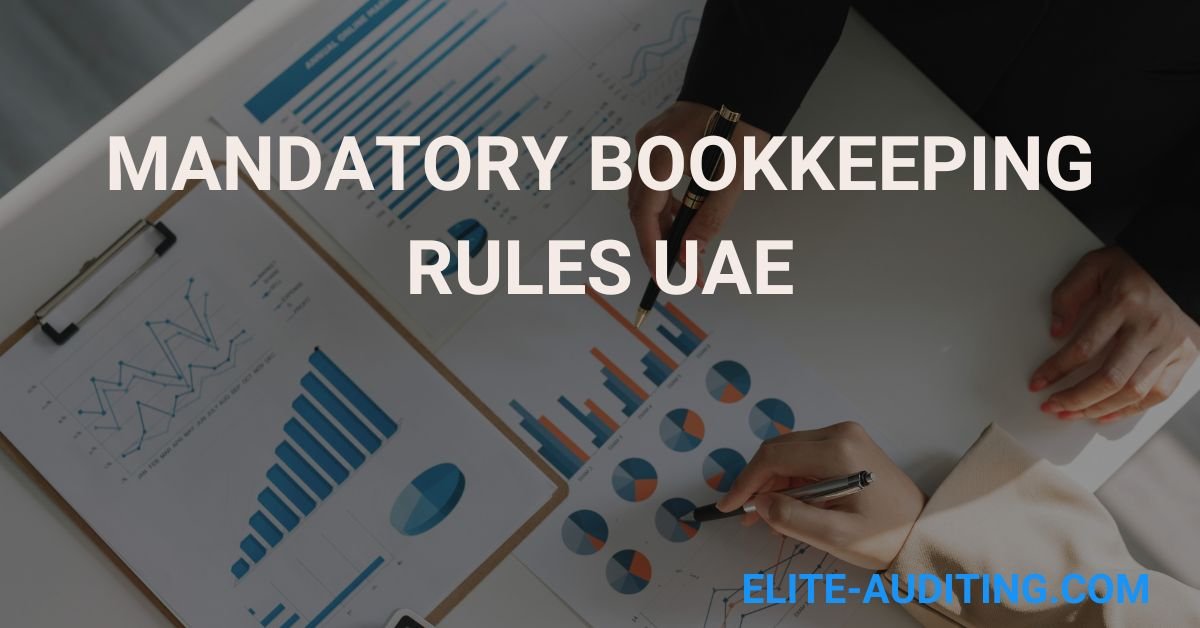Is Bookkeeping Mandatory for UAE Businesses?
Bookkeeping is mandatory in the United Arab Emirates and most businesses within this country should maintain proper financial records according to government stipulations. This can ensure compliance with tax laws such as VAT and the implementation of international accounting standards, or IFRS. Keeping bookkeeping records helps a business stay organized, avoid getting penalized, and prepare for audits.
Keeping track of everything with a small business or big corporation is not just the law; it’s also one of the smartest things any businessperson can do. Clear books would give you clarity on the health of your financial bookkeeping, thus helping one make more informed decisions.
Introduction to Bookkeeping in the UAE
Bookkeeping is the process of recording, organizing, and managing a company’s financial transactions. It ensures that your business complies with local laws, like the UAE’s VAT regulations, and provides you with insights into your finances. This is especially important for businesses operating in Dubai and other emirates, where international trade and rapid economic growth demand accurate financial reporting.
Why is Bookkeeping Necessary in the UAE?
Bookkeeping in the UAE is essential for several reasons:
- Compliance with Laws:
The UAE has strict regulations, including VAT laws, requiring accurate financial reporting. - Tax Filing:
Bookkeeping ensures businesses can file their VAT returns correctly and on time. - Audit Readiness:
The government conducts audits to check if businesses comply with financial laws. Proper records make this process smoother. - Business Growth:
Organized records help businesses track their performance, control costs, and plan for the future. - Avoid Penalties:
Inaccurate or missing records can lead to heavy fines.
What Does UAE Law Say About Bookkeeping?
Under Federal Law No. 2 of 2015 (Commercial Companies Law), UAE businesses are required to:
- Register financial records for more than five years
- Comply and observe reporting requirements under VAT if registered
- Comply with IFRS.
Any failure in the above has the implications of either
- A fine of between AED 10,000-AED 50,000.
- Suspension of business.
What Types of Businesses Must Keep Books?
For all types of business in the UAE, there has to be bookkeeping. These include:
- Small and Medium Enterprises (SMEs):
Even small and starting businesses have to be on the book.
- VAT-Registered Companies:
If a business earns over AED 375,000 per year, it has to register under the head of VAT and has to maintain the records.
- Freelancers and Sole Proprietors:
Although very small operations can be less complicated in their requirements, still accurate financial records must be maintained.
How to Get Started with Bookkeeping in the UAE
To simplify bookkeeping for your business, follow these steps:
- Choose the Right System:
Use tools like QuickBooks or Intuit software to manage transactions. - Track All Financial Transactions:
Record sales, purchases, employee salaries, and other expenses. - Hire a Professional Bookkeeper:
Firms like Elite Auditing provide expert bookkeeping services. - Stay Compliant:
Regularly review your books to ensure compliance with UAE laws. - Invest in Software:
Subscription-based software can automate many tasks and save time.
Benefits of Professional Bookkeeping Services
Partnering with a service provider like Elite Auditing ensures:
- Accurate Reporting:
Experts maintain records that meet IFRS standards. - Tax Efficiency:
Proper bookkeeping ensures timely VAT filing. - Focus on Core Business:
Outsourcing frees up your time to focus on growth.
Common Questions About Bookkeeping in the UAE
- What happens if I don’t maintain books?
You may face penalties, tax issues, or even legal action. - Do freelancers need bookkeeping?
Yes, even individual professionals must keep records for VAT and audits. - Which software is best for UAE businesses?
Popular choices include QuickBooks, Zoho Books, and Xero. - How often should I update my records?
Ideally, update them daily or weekly to avoid errors. - Can I do bookkeeping myself?
Yes, but hiring an expert ensures accuracy and compliance.
Bookkeeping vs. Accounting: What’s the Difference?
| Aspect | Bookkeeping | Accounting |
| Definition | Recording daily transactions. | Interpreting and analyzing financial data. |
| Scope | Basic financial record-keeping. | Strategic financial management. |
| Focus | Accuracy in records. | Decision-making based on reports. |
Practical Tips for Efficient Bookkeeping
- Automate Tasks: Use tools that simplify data entry.
- Keep Receipts: Save copies of all business expenses.
- Reconcile Monthly: Match bank statements with your records.
- Stay Organized: Categorize transactions into clear accounts.
- Review Regularly: Check for errors or discrepancies.
Conclusion
Bookkeeping is not about compliance with the UAE requirements; it is more of an enabler for business success. Good financial records save you from penalties, allow for easier preparation for audits, and give you the opportunity to focus on your business’s development. Elite Auditing in Dubai is there if all this book-keeping is getting too much for you to handle.
FAQ: Simplified Bookkeeping in Dubai
How long should I keep records?
Keep them for at least five years to comply with UAE laws.
What are the penalties for errors?
Incorrect records can lead to fines up to AED 50,000.
Is VAT registration mandatory?
Only if your annual revenue exceeds AED 375,000.
Can Elite Auditing help with audits?
Yes, we provide audit support, VAT compliance, and bookkeeping services tailored to your needs.
Author






